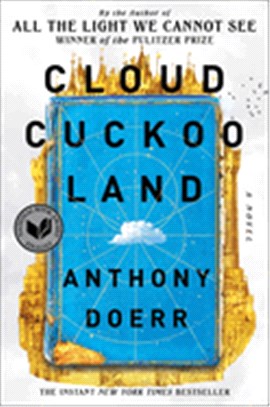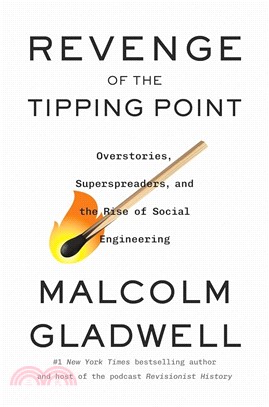Archetypal Politics Tracing Collective Unconscious Landscapes
商品資訊
ISBN13:9798302424501
出版社:Independently published
作者:Serban Gabriel Florin
出版日:2024/12/07
裝訂:平裝
規格:25.4cm*20.3cm*1.5cm (高/寬/厚)
商品簡介
相關商品
商品簡介
"Archetypal Politics: Tracing Collective Unconscious Landscapes" appears as a critical juncture in both political theory and depth psychology, offering a novel theoretical framework for understanding the profound interplay between archetypal patterns and contemporary political phenomena.
This work synthesizes Jungian analytical psychology with political science, proposing that our political behaviors, institutions, and conflicts are fundamentally shaped by archetypal forces running within the collective unconscious.
In an era marked by increasing political polarization and the resurgence of primordial political narratives, this investigation becomes particularly pertinent.
The book advances the thesis that political movements, ideologies, and leadership figures draw their psychological power from deep-seated archetypal patterns that resonate across cultures and historical periods.
By examining these patterns-from the Hero and the Shadow in political leadership to the Great Mother in nationalist narratives-we can better understand the emotional and psychological underpinnings of political behavior.
This interdisciplinary study builds upon the foundational works of Carl Gustav Jung, James Hillman, and Murray Stein, while incorporating contemporary insights from political psychology, social neuroscience, and cultural anthropology.
The research method combines theoretical analysis with case studies drawn from both historical and contemporary political movements, proving how archetypal patterns manifest in various political contexts.
Central to this work is the concept of "collective unconscious landscapes "a term that describes the shared psychological terrain that shapes political consciousness and behavior.
These landscapes, formed by accumulated human experiences and primordial images, influence everything from voting patterns to revolutionary movements, from policy preferences to political identity formation.
The book's significance lies in its potential to:
Provide a deeper understanding of political behavior beyond rational choice theories
Offer new tools for analyzing political movements and their psychological appeal
Bridge the gap between depth psychology and political science
Contribute to conflict resolution by illuminating unconscious political dynamics
As we navigate an increasingly complex political landscape, understanding the archetypal dimensions of political life becomes not merely an academic exercise but a practical necessity for addressing contemporary challenges in governance, democracy, and international relations.
Through this lens, we can better understand why certain political narratives resonate deeply across cultures, how leadership figures embody collective aspirations and fears, and why political conflicts often resist rational resolution.
This understanding may prove crucial for developing more effective approaches to political dialogue, conflict resolution, and social transformation.
As I conclude this introduction, I am moved to express my deepest gratitude to the readers who have chosen to embark on this intellectual journey with me.
Your willingness to explore these depths of political consciousness is not merely an academic exercise, it is an act of commitment to understanding the forces that shape our collective future.
This work synthesizes Jungian analytical psychology with political science, proposing that our political behaviors, institutions, and conflicts are fundamentally shaped by archetypal forces running within the collective unconscious.
In an era marked by increasing political polarization and the resurgence of primordial political narratives, this investigation becomes particularly pertinent.
The book advances the thesis that political movements, ideologies, and leadership figures draw their psychological power from deep-seated archetypal patterns that resonate across cultures and historical periods.
By examining these patterns-from the Hero and the Shadow in political leadership to the Great Mother in nationalist narratives-we can better understand the emotional and psychological underpinnings of political behavior.
This interdisciplinary study builds upon the foundational works of Carl Gustav Jung, James Hillman, and Murray Stein, while incorporating contemporary insights from political psychology, social neuroscience, and cultural anthropology.
The research method combines theoretical analysis with case studies drawn from both historical and contemporary political movements, proving how archetypal patterns manifest in various political contexts.
Central to this work is the concept of "collective unconscious landscapes "a term that describes the shared psychological terrain that shapes political consciousness and behavior.
These landscapes, formed by accumulated human experiences and primordial images, influence everything from voting patterns to revolutionary movements, from policy preferences to political identity formation.
The book's significance lies in its potential to:
Provide a deeper understanding of political behavior beyond rational choice theories
Offer new tools for analyzing political movements and their psychological appeal
Bridge the gap between depth psychology and political science
Contribute to conflict resolution by illuminating unconscious political dynamics
As we navigate an increasingly complex political landscape, understanding the archetypal dimensions of political life becomes not merely an academic exercise but a practical necessity for addressing contemporary challenges in governance, democracy, and international relations.
Through this lens, we can better understand why certain political narratives resonate deeply across cultures, how leadership figures embody collective aspirations and fears, and why political conflicts often resist rational resolution.
This understanding may prove crucial for developing more effective approaches to political dialogue, conflict resolution, and social transformation.
As I conclude this introduction, I am moved to express my deepest gratitude to the readers who have chosen to embark on this intellectual journey with me.
Your willingness to explore these depths of political consciousness is not merely an academic exercise, it is an act of commitment to understanding the forces that shape our collective future.
主題書展
更多
主題書展
更多書展今日66折
您曾經瀏覽過的商品
購物須知
外文書商品之書封,為出版社提供之樣本。實際出貨商品,以出版社所提供之現有版本為主。部份書籍,因出版社供應狀況特殊,匯率將依實際狀況做調整。
無庫存之商品,在您完成訂單程序之後,將以空運的方式為你下單調貨。為了縮短等待的時間,建議您將外文書與其他商品分開下單,以獲得最快的取貨速度,平均調貨時間為1~2個月。
為了保護您的權益,「三民網路書店」提供會員七日商品鑑賞期(收到商品為起始日)。
若要辦理退貨,請在商品鑑賞期內寄回,且商品必須是全新狀態與完整包裝(商品、附件、發票、隨貨贈品等)否則恕不接受退貨。
























